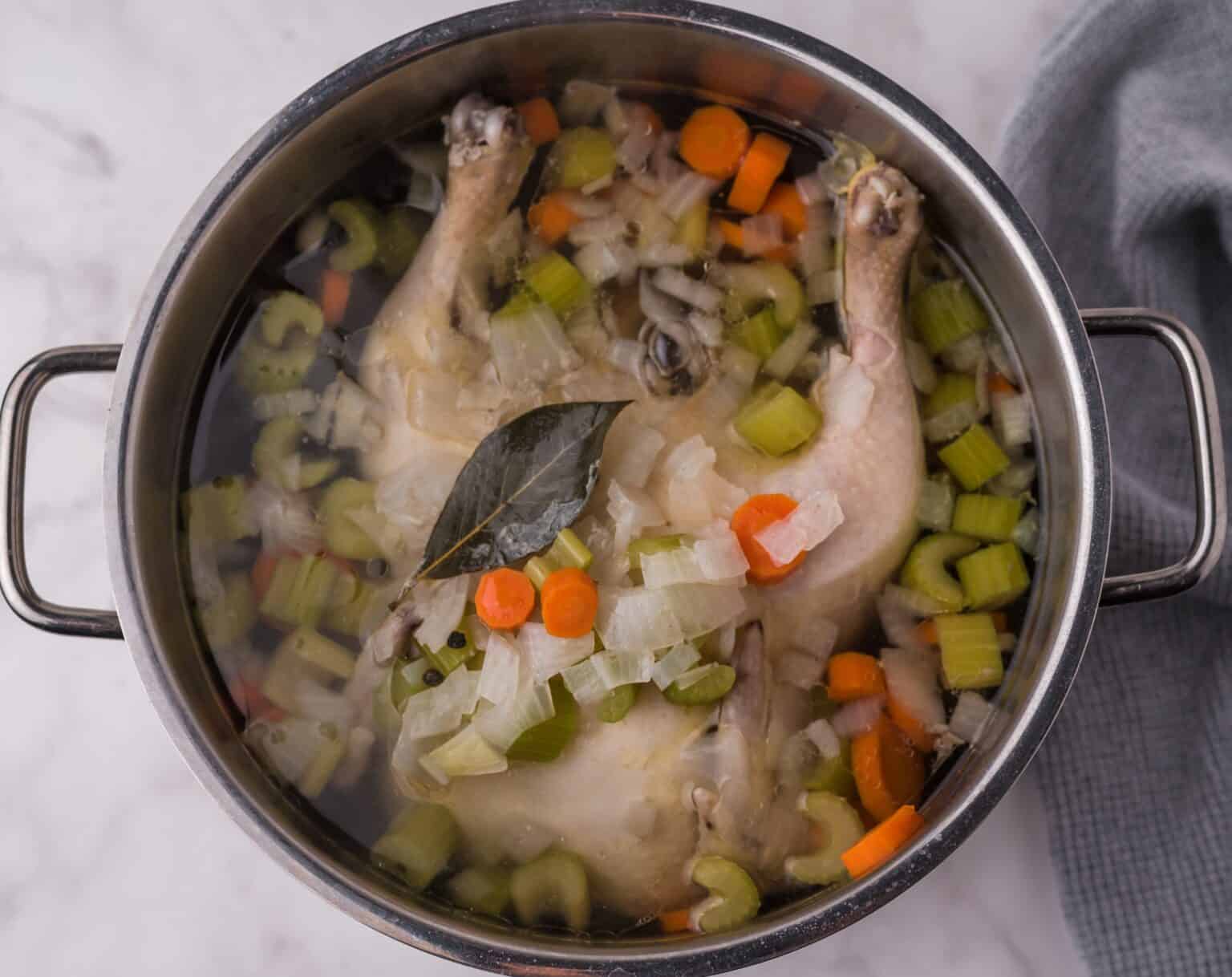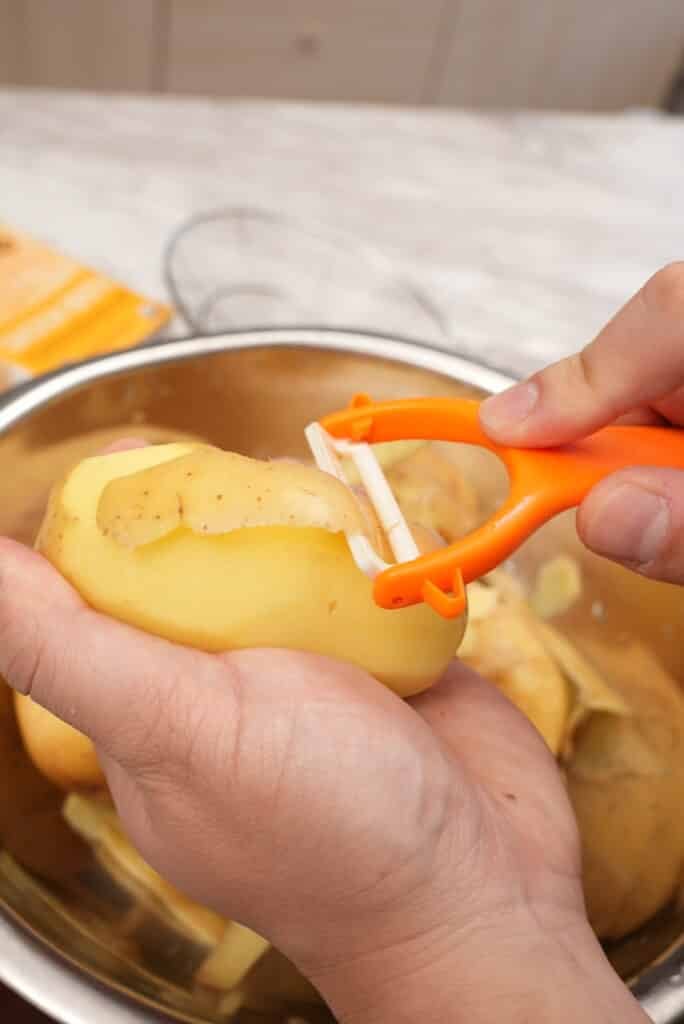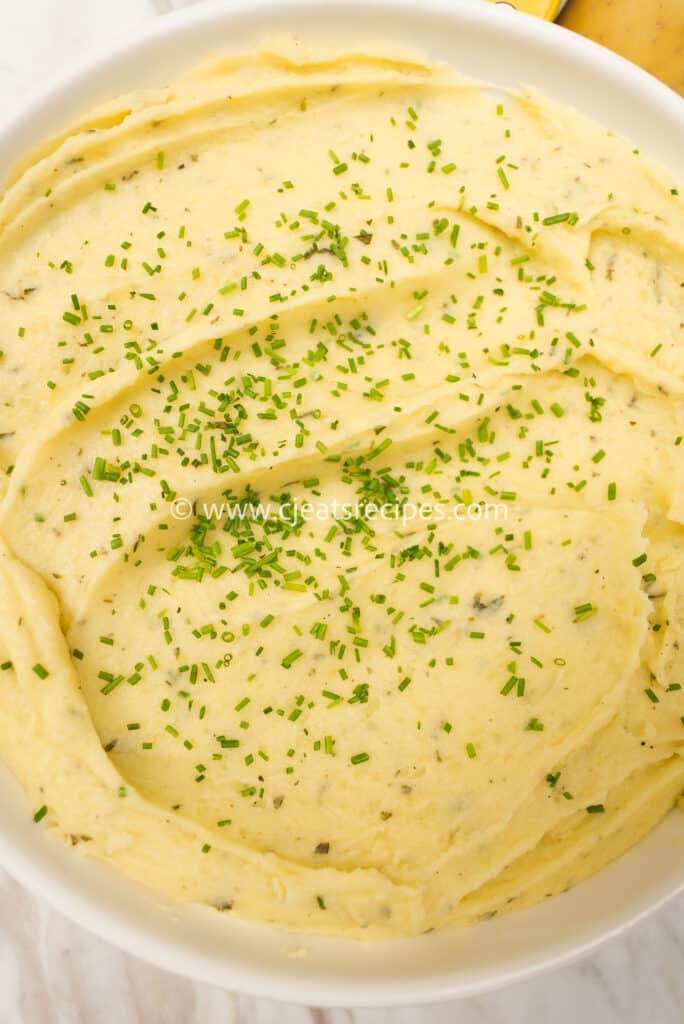Hey there, kitchen warriors! Ever wondered how long to boil potatoes in chicken broth to get that perfect, savory bite? Well, I’ve got ya covered. If you’re looking for a quick answer, it usually takes 15 to 20 minutes for diced potatoes to get fork-tender in chicken broth. But hold up—there’s a bit more to it depending on the size, type, and how you cut those spuds. Stick with me, and I’ll walk ya through everything you need to know to make this simple side dish a total game-changer in your meals.
I remember the first time I swapped water for chicken broth—dang what a difference! It’s like giving your potatoes a cozy flavorful hug. So, let’s dive into the nitty-gritty of boiling potatoes in broth, from timing to tips, and make sure you nail it every time.
How Long Does It Really Take? Let’s Break It Down
Timing is everything when boiling potatoes in chicken broth and it ain’t a one-size-fits-all deal. Here’s the scoop based on how you prep your taters and what kind you’re using. I’ve put together a little table to keep things crystal clear.
| Potato Size/Cut | Approx. Cooking Time | Notes |
|---|---|---|
| Small Dice (½ inch) | 12-15 minutes | Cooks fast, great for quick sides. |
| Medium Dice (1 inch) | 15-20 minutes | The sweet spot for most recipes. |
| Large Chunks (2+ inches) | 20-25 minutes | Takes longer, check with a fork. |
| Whole Potatoes | 30-45 minutes | Depends on size, test the center. |
And don’t forget, the type of potato matters too! Here’s how they play out:
- Waxy Potatoes (like red or new potatoes): These hold shape good and might need a tad longer, say 18-22 minutes for diced bits.
- All-Purpose Potatoes (think Yukon Gold): They’re my go-to, usually done in that 15-20 minute range for medium cuts.
- Starchy Potatoes (Russets, anyone?): These cook quicker, maybe 12-18 minutes, but watch out—they can turn to mush if you overdo it.
So, grab a fork and start checking around the 12-minute mark. If it slides in easy, you’re golden. If not, give ‘em a few more minutes. We’ll get into the step-by-step next to make sure you don’t mess this up.
Step-by-Step: Boiling Potatoes in Chicken Broth Like a Pro
Alright let’s get down to business. Boiling potatoes in chicken broth is easy-peasy but a few tricks can make it perfect. Here’s how I do it every time
- Prep Your Spuds: Wash ‘em good. Peel if you want—I usually don’t unless they’re lookin’ rough. Cut into even pieces so they cook at the same rate. Uneven chunks? You’ll have some mushy and some hard bits. No bueno.
- Get the Broth Ready: Toss those potato pieces into a pot and pour in chicken broth ‘til they’re covered by about an inch. If you’re short on broth, top off with a lil’ water, no biggie.
- Start Cold: Don’t throw ‘em into boiling broth! Start with cold broth so they cook even from the inside out. Trust me, I learned this the hard way with half-cooked centers.
- Bring to a Boil: Crank the heat to high and get that broth rolling. Once it’s bubblin’, turn it down to a simmer. No need for a crazy boil that breaks ‘em apart.
- Check for Doneness: After about 12 minutes, poke a piece with a fork. If it’s soft with little resistance, you’re done. If it’s still tough, keep simmering and check every few minutes.
- Drain and Rest: Once they’re tender, drain off the broth. Let ‘em sit in the pot off the heat for a minute to dry out a bit. I sometimes drizzle a touch of olive oil over ‘em for extra moisture—up to you.
- Serve It Up: Enjoy as is, or toss ‘em into a recipe. They’ve got that savory kick from the broth already, so you’re halfway to flavor town.
That’s the basics! Now, let’s chat about why chicken broth is the secret sauce and how different factors tweak your cooking game.
Why Chicken Broth Over Plain Water? Flavor, Baby!
If you’ve never boiled potatoes in chicken broth before, you’re in for a treat. Unlike water, which is just… well, water, chicken broth brings a rich, savory depth to the table. It’s got that umami vibe—kinda like a subtle meaty flavor—that soaks right into the spuds as they cook. I swear, once I tried it, I couldn’t go back to plain ol’ water unless I’m desperate.
Plus, it’s a sneaky way to level up a simple side dish without extra work. You’re not just boiling; you’re infusing. And if you’re makin’ something like potato salad or a mash, that built-in flavor means less seasoning later. It’s a win-win in my book.
Potato Varieties: Pick the Right One for the Job
Not all potatoes are created equal, y’know. The kind you grab at the store can change how long they take to boil in chicken broth and how they hold up. Let’s break it down so you pick the best for your dish:
- Waxy Types: These are your red potatoes or little new potatoes. They’re low in starch, so they stay firm even after a good boil. Perfect if you want ‘em to keep shape in a salad or as a side. Takes a bit longer, though, like 18-22 minutes for diced ones.
- All-Purpose Kinds: Yukon Golds are my fave here. They’ve got a nice balance—some starch, some moisture. They cook up in about 15-20 minutes for medium pieces and work for pretty much anything, from mash to roasting after boiling.
- Starchy Spuds: Russets are the big dogs of this category. Tons of starch means they cook faster—12-18 minutes—but they fall apart easy. Great for mashing, not so much if you want whole chunks. Keep an eye on ‘em!
Pro tip: don’t mix different types in one pot. They cook at different speeds, and you’ll end up with a weird mix of overdone and undercooked. I’ve made that mistake before, and it ain’t pretty.
Size and Shape: Why It Messes with Your Timing
I can’t stress this enough—how you cut your potatoes is a big deal. Smaller bits cook faster than a jackrabbit, while humongo chunks take their sweet time. If you’ve got a pot full of uneven sizes, good luck gettin’ ‘em all done right. Here’s the deal:
- Tiny Dices (½ inch): These lil’ guys are done in 12-15 minutes. Great if you’re in a rush or makin’ something like a soup where they blend in.
- Medium Cubes (1 inch): This is the standard I stick to. Takes 15-20 minutes, and it’s just right for most side dishes or recipes.
- Big Chunks (2 inches or more): You’re lookin’ at 20-25 minutes, sometimes more. I use these when I want hearty pieces, but ya gotta be patient.
- Whole Taters: If you’re boiling ‘em whole, brace yourself for 30-45 minutes, depending on how big they are. Poke the center with a fork to make sure it’s not raw inside.
Moral of the story? Cut ‘em uniform. Grab a knife, take a sec, and make sure they’re all roughly the same. It’ll save ya a headache, I promise.
Tips to Make Your Potatoes Pop with Flavor
Alright, you’ve got the timing down, but let’s kick it up a notch. Boiling in chicken broth already gives a flavor boost, but I’ve got a few tricks up my sleeve to make ‘em even better:
- Add Aromatics: Toss in a bay leaf, a couple smashed garlic cloves, or a sprig of thyme while they boil. It infuses extra yumminess right into the spuds. Just fish ‘em out before serving.
- Spice It Up: A pinch of red pepper flakes or black pepper in the broth can add a lil’ kick. Not too much, though—don’t overpower that savory broth taste.
- Salt with Care: Chicken broth can be salty on its own, so taste it first. If it’s mild, add a pinch of salt to the pot. It helps the potatoes soak up flavor and might even speed things up a tiny bit.
- Post-Boil Drizzle: Once they’re drained, I sometimes splash a bit of olive oil or melted butter over ‘em. Keeps ‘em from being dry and adds a silky touch.
- Herb Finish: Sprinkle some fresh parsley or dill on top after cooking. Looks fancy and tastes fresh—great for impressin’ folks at dinner.
Experiment a bit! That’s half the fun of cooking, right? Find what tickles your taste buds and roll with it.
Avoid These Boo-Boos When Boiling Potatoes
I’ve flubbed this more times than I care to admit, so lemme save you some trouble. Here are common slip-ups and how to dodge ‘em:
- Overcooking to Mush: Don’t just set a timer and walk away. Start checking early—around 12 minutes for diced. If they’re too soft, they’ll disintegrate. Ain’t nobody want potato soup when you’re aiming for chunks.
- Starting with Hot Broth: I said it before, but it bears repeating—start cold. Hot broth cooks the outside too fast, leaving the inside hard as a rock.
- Not Stirring: Potatoes can stick to the bottom of the pot and burn. Give ‘em a gentle stir now and then. Use a heavy pot if ya got one—it helps heat spread even.
- Skimping on Broth: Make sure they’re fully covered, or some pieces won’t cook right. Top off with water if you gotta, no shame in that.
Keep these in mind, and you’ll be smooth sailing. Trust me, I’ve learned from plenty of kitchen disasters.
Got Questions? I’ve Got Answers!
Over the years, I’ve heard all kinda questions about boiling potatoes in chicken broth. Let’s tackle some of the big ones so you’re not left scratchin’ your head.
Can You Overcook Potatoes in Broth?
Heck yeah, you can. They turn into a mushy mess if you let ‘em go too long. Check early and often with a fork. Soon as they’re tender, get ‘em outta there.
Do You Gotta Peel ‘Em First?
Nah, it’s up to you. I often leave the skins on for extra texture and nutrients. Just wash ‘em real good to get rid of dirt. If you hate skins, peel away—no harm done.
What If They’re Still Hard After 20 Minutes?
Don’t panic. Keep simmering and check every few minutes. Make sure they’re fully submerged in broth and the heat’s at a steady simmer, not too low. Sometimes altitude or old potatoes can slow things down.
Can You Reuse the Broth After?
Totally! That leftover broth’s got potato starch and flavor in it now. Use it as a base for soups, gravies, or sauces. Just don’t keep it if it smells off or looks funky.
Should You Boil Different Potato Types Together?
I wouldn’t. They cook at different rates ‘cause of starch levels. You’ll end up with some overdone and some undercooked. Stick to one type per pot for best results.
These little Q&As should cover most hiccups. If somethin’ else pops up, just play around and see what works.
A Lil’ Story from My Kitchen
Lemme tell ya about the time I totally botched this. I was rushin’ to get dinner on the table, threw some unevenly cut potatoes into boiling broth (big mistake), and half were mush while the others were hard as pebbles. My family still teases me about that “potato soup surprise.” But hey, live and learn, right? Now I take my time cutting ‘em even and always start with cold broth. It’s the little things that save the day.
What to Do with Your Broth-Boiled Potatoes
Now that you’ve got perfectly boiled potatoes, what’s next? Man, the options are endless. Here are a few ideas to get ya started:
- Classic Side Dish: Serve ‘em as is with a pat of butter or a drizzle of oil. Sprinkle some salt and pepper, and you’re good to go.
- Potato Salad: Let ‘em cool, then mix with mayo, mustard, and some chopped herbs. The broth flavor adds a nice twist.
- Mashed Taters: Smash ‘em up with a bit of cream or more broth. They’re already savory, so you don’t need much else.
- Soup or Stew: Toss ‘em into a hearty soup. Since they’ve soaked up broth, they blend right in with the flavors.
- Roasted After Boiling: Drain ‘em, toss with oil and spices, and roast in the oven for a crispy outside. Best of both worlds!
I love playin’ around with these ideas. Sometimes I just snack on ‘em straight from the pot—don’t judge me!
Wrapping It Up: Get Boiling!
So, there ya have it—everything you need to know about how long to boil potatoes in chicken broth. Whether it’s 15-20 minutes for diced spuds or up to 45 for whole ones, you’ve got the tools to make it work. Remember to cut ‘em even, start with cold broth, and check with a fork to avoid overcooking. Add some extra flavors if you’re feelin’ fancy, and don’t be afraid to mess up a time or two—it’s how we learn.
I’m curious, though—what’s your favorite way to use boiled potatoes? Got any secret tips or family recipes? Drop a comment below and let’s swap ideas. And hey, if this guide helped ya out, give it a try tonight and see how that chicken broth magic works. Happy cooking, folks!

Wash and Peel the Potatoes
Wash and peel your Yukon gold potatoes to remove any excess starch.
Note – I prefer peeled potatoes for my Mashed Potatoes but if you like the skins, feel free to skip the peeling!

Fold in the Seasonings
Into the dutch oven or pot with the riced potatoes, add your clarified herb butter, half and half, and freshly grated parmesan cheese. Fold and mix until just well incorporated. Add salt to taste.
Tip: Don’t overmix or your Mashed Potatoes may turn gummy!
Note on dairy: Some recipes call for sour cream or even cream cheese; I personally find that half and half (milk and heavy cream) is the best option, as it helps the Mashed Potatoes become extremely creamy without feeling too heavy. You are welcome to use the dairy of your choice.
Optional: I like to serve my Mashed Potatoes with freshly chopped chives for an elevated garnish!

Stand-out Mashed Potatoes with Savory Choice Chicken Liquid Broth Concentrate
FAQ
Should you boil your potatoes in chicken broth?
Even classic recipes can benefit from some small tweaks from time to time; to make your mashed potatoes burst with flavor, consider boiling your potatoes in chicken stock instead of the usual salted water.
How long does it take for potatoes to soften in broth?
Combine potatoes and chicken broth in a 3-quart saucepan over medium-high heat; bring to a boil. Reduce the heat to medium, cover, and cook until potatoes are tender, about 10 minutes. Drain potatoes well in a colander, reserving the broth.
How long to boil when making chicken broth?
The length of time to cook chicken stock can vary widely, although 2 hours minimum is usually a good start. Allowing the stock to simmer for several hours longer will produce a stronger, more concentrated flavor. I would say that 2-3 hours is sufficient time for a flavorful chicken stock.
How long does it usually take to boil potatoes?
How long do you boil potatoes in chicken broth?
Peel potatoes and cube into large chunks. Pour chicken broth over potatoes. If not completely covered, then add water until all potatoes are submerged. Boil on medium heat until tender, about 30-40 minutes. If you need to speed up the process, can boil covered for the last 10 minutes. Drain.
Can You boil chicken & potatoes?
Overall, boiling is one of the healthiest, simplest ways to cook chicken and potatoes for a comforting one-pot meal. Follow this simple step-by-step guide for foolproof boiled chicken and potatoes: 1. Add the broth and bay leaf to a large pot. Bring to a boil over high heat. 2. Add the chicken pieces to the boiling liquid.
How do you boil pork bone broth?
To make a pork bone broth, start by bringing 12 quarts of water to a boil on high heat in a pot. Once the broth is boiling hard, turn the heat to medium high so that it constantly lightly boils.
How to Cook boiled chicken & potatoes in a crock pot?
Follow this simple step-by-step guide for foolproof boiled chicken and potatoes: 1. Add the broth and bay leaf to a large pot. Bring to a boil over high heat. 2. Add the chicken pieces to the boiling liquid. Reduce heat to medium and simmer for 5 minutes. 3. Add the potatoes, onion, garlic, thyme, salt and pepper. Bring back to a gentle simmer. 4.
How long does it take to cook chicken broth?
Bring to a gentle boil and reduce heat to low. Cover and simmer for 25 to 30 minutes, stirring occasionally. Remove lid and cook for another 10 minutes, adding additional broth if needed to reach desired consistency.
How long should you boil chicken thighs for broth?
No matter if you are boiling chicken thighs that are bone-in or boneless, you will want to boil your chicken for broth anywhere from 1-5 hours before removing your chicken and using the meat any way you like. Bear in mind that when doing this, it is possible that your chicken might dry out if boiled too long.
